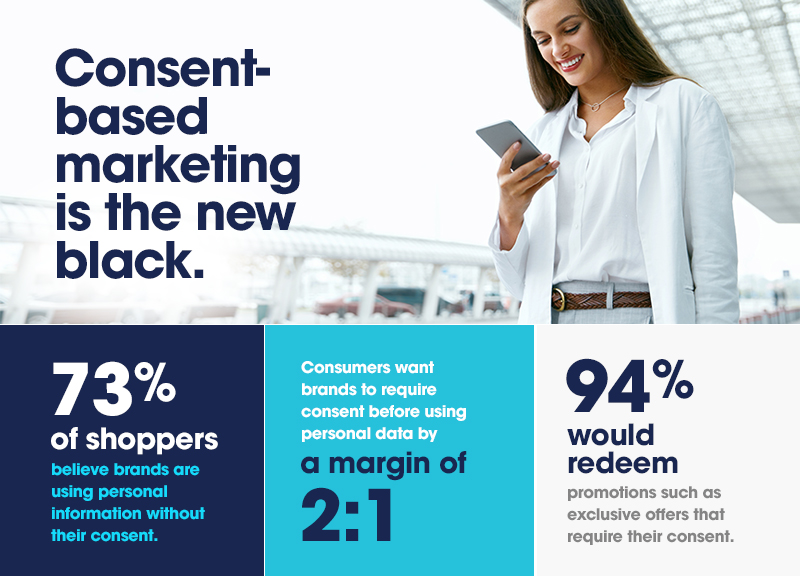When it comes to data privacy, there’s no question that consumers are wary – especially on the heels of the Facebook-Cambridge Analytica data scandal. But where does that leave personalization?
If you’re a marketer, personalized offers are the holy grail, yet the prevailing approach to personalized offers and promotions requires using personal data — in many cases without the customer’s consent.
That tension between privacy and personalization is the topic of our latest survey on Americans’ shopping habits and purchase behavior. Published today featuring primary research from Kelton Global, the consumer shopping report, Privacy, Personalization, and Promotions, reveals that consumers want brands to require consent before using personal data for targeted marketing by a 2:1 margin. At the same time, an overwhelming number (94%) report they would take advantage of an exclusive offer ahead of other popular retail programs like price-match guarantee or VIP service.
Opinion captured in the survey questions the viability of personalization techniques that rely on third-party data tracking. Our post-Cambridge Analytica environment is ushering in a new era of consent-based personalization.
Just look at the increases shoppers said exclusive offers would have on their purchasing behavior:

Yet consumers are also protective of their data and suspicious about how brands are using it.

One surprising finding from the survey is that nearly two thirds of Americans say they prefer to learn about new products and brands directly from the brand itself – more than from their peers and by a 3:1 margin over bloggers.
Brands have the power to ease consumers’ privacy concerns and give them the personalized promotions shoppers want – they just need to understand the issues and develop consent-based approaches to effectively address them.
To learn more, download our 2018 Shopper Study: Personalization, Promotions, and Privacy.






